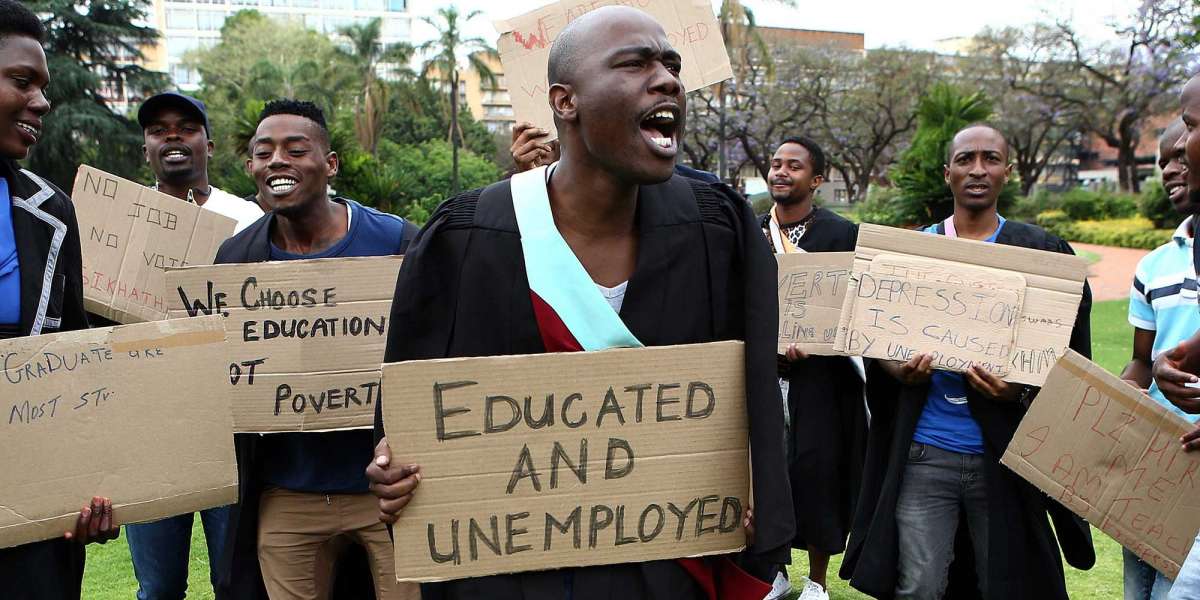As SA's unemployment rate soared to a record 35.3% on Tuesday, there were mixed views on what is causing the shocking figures with load-shedding, the Covid-19 pandemic and maladministration within government taking centre stage. According to Stats SA, the official unemployment rate increased by 0.4 of a percentage point to 35.3%, the highest since the start of the Quarterly Labour Force Survey (QLFS) in 2008 when the country was in recession.
Cosatu national spokesperson Sizwe Pamla said there was a real danger that unemployment could rise in the next quarter as the war in Ukraine unfolds and global oil and domestic fuel prices skyrocket. “This is very alarming because it means that in no time about 50% of people in the working-age population will be officially unemployed,” Pamla said. “The fuel price increases and the ongoing load-shedding have created more hardship for the working class that is already suffering from high levels of unemployment and stagnant or declining real wages.
“Eskom is the lifeline for this economy and there cannot be an economic recovery without an efficient and stable Eskom. Eskom’s situation will worsen with the rise in fuel prices as it depends upon diesel to offset load-shedding.” University of Fort Hare professor and business management department head Willie Chinyamurindi said the statistics were not surprising, due to the pandemic. “Unemployment needs a response and right now there is still talk around jobs. While President [Cyril Ramaphosa] is in Dubai looking for investors, ones back home are packing their bags due to labour laws,” he said.
Chinyamurindi said the government needed to look at what worked and to cut back on what did not work despite the backlash. “Even at the level of higher education we need to look at what we're doing with the product we're sending to the market because the skills we're producing aren't seeing eye-to-eye with the market,” he said. Chinyamurindi said SA was not unique, that all other economies around the world were experiencing the same challenges. “It might take a decade before we return to some semblance of normalcy.”
The number of employed people increased by 262,000 to 14.5m and the number of unemployed people also increased by 278,000 to 7.9m in the fourth quarter of 2021, compared to the third quarter. Formal sector employment increased by 143,000 jobs between the last quarter and now while the informal sector shed 48,000 jobs in the same period. “These changes in the labour market resulted in the official unemployment rate increasing by 0.4 of a percentage point from 34.9% in the third quarter of 2021 to 35.3% in the fourth quarter of 2021 — the highest since the start of the QLFS in 2008.
“The unemployment rate according to the expanded definition of unemployment decreased by 0.4 of a percentage point to 46.2 % in quarter four 2021 compared to quarter three 2021,” the report said. The working-age population increased by 143,000 in the fourth quarter of 2021 compared to the third quarter. Benni Shozi, 34, from the East Rand said he had been looking for work since 2010 after losing his job. “I used to work at a factory. I've submitted many CVs over the years and, unfortunately, I haven't been successful. “It's been really hard. I've relied on people to help me out over the years. Sometimes I make money through recycling and I'm coming to a point whereby I believe I'll never find formal employment,” he said.
National Union of Metalworkers of SA (Numsa) national spokesperson Phakamile Hlubi-Majola said the union had foreseen the rise in job losses and blamed the government’s macroeconomic policies which it claims had failed the poor and the working class. “They keep giving us the same medicine, which is this neoliberal agenda that has not created jobs. What it has done is that it has resulted in the hollowing out of the manufacturing sector. The capacity for manufacturing in SA has been eroded over the years by this government. We are importing things that we can make ourselves in this country, including sanitiser and masks,” Hlubi-Majola said.
Unemployed People’s Movement national spokesperson Ayanda Kota said the government had to be pushed to ensure the full implementation of the basic income grant as more people were set to join the army of the unemployed amid a decline in industrialisation. “While the finance sector continues to grow unabated we see the continued deindustrialisation of the SA economy, including a reduction in the size of the manufacturing sector. Greater levels of investment must be directed to where jobs can be created and that can contribute to the provision of services for the majority of the country,” he said.








